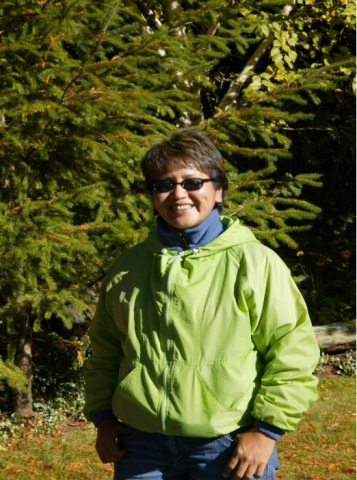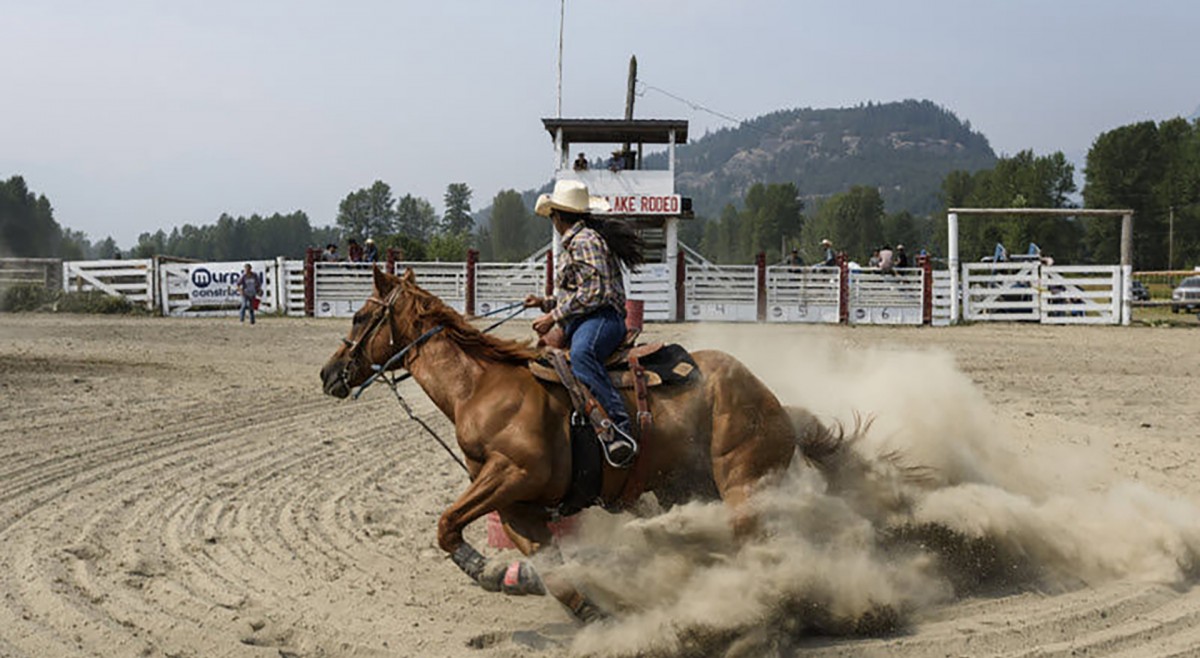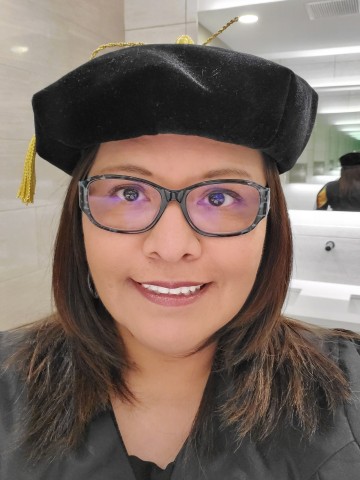
Teaching project management skills to Indigenous learners

Students of UBC Sauder’s Ch’nook Indigenous Business Education come from communities across the province and country, including Mount Currie, B.C., pictured here.
Ch’nook Indigenous Business Education at UBC Sauder delivers business courses to Indigenous learners, leaders and entrepreneurs. One of the program’s most popular courses, offered through the Accelerated Business Program, equips students with essential project management skills.
The five-week course was delivered over Zoom for the first time this summer to students across B.C. and Yukon. According to Ch’nook Program Manager Erin Catherall, transitioning to the virtual classroom has made it possible for more Indigenous students, regardless of their location, to access higher education.
“Not only has online learning opened up educational opportunities to those in remote communities, but it has also created an opportunity for Indigenous learners to learn from one another and build professional connections and friendships,” notes Catherall.
Developing leadership and management skills
Maxine Joseph Bruce is a member of Líl̓wat Nation in Mount Currie, located about 40 kilometres northeast of Whistler. Her dedication to advocating for her people has made her an important figure in the community.

Maxine Jospeh Bruce took Ch’nook’s project management course over the summer and is also a 2020 graduate of the Aboriginal Management Program.
“I’m interested in First Nations title, rights and responsibilities and developing new economic opportunities for my people,” explains Maxine, whose ancestral name is Lhpatq.
She enrolled in Ch’nook’s project management course to broaden her professional skills. As Líl̓wat Nation’s Fisheries and Environment Manager, Maxine helps manage the nation’s traditional territories that encompass almost 800,000 hectares of land, including the Resort Municipality of Whistler.
“My department assesses any new land and water tenure, licence and permit applications within our traditional territories. I oversee a lot of fieldwork and impact studies.”
In addition to her full-time job, Maxine also serves as an elected member of the Líl̓wat Nation Council – a position she has held for 13 years and counting. Her key area of responsibility is economic development.
For her final assignment in the course, she decided to apply project management principles toward an event in her community: the Líl̓wat Nation Rodeo & Pow-wow. The annual event brings hundreds of visitors to Mount Currie to watch local riders compete in rodeo events.

Photo credit: Líl̓wat Nation Rodeo & Pow-wow
Maxine envisioned an expanded event, held over the September long weekend to attract more visitors, including those from nearby Whistler. The cultural celebration would feature more events and activities for all ages, and importantly, involve more Líl̓wat Nation members.
“It’s not just about creating a bigger economic opportunity, it’s also about inviting more people to get involved so everyone can feel a sense of pride for their community,” says Maxine.
Reaching across borders and boundaries
Dr. Marie Natrall is another recent graduate of the Ch’nook project management course. A member of Squamish Nation, whose traditional territories share a border with Líl̓wat Nation, Marie grew up North Vancouver before her life and career took her to Washington State.

Dr. Marie Natrall is a member of Squamish Nation who lives and works in Olympia, Washington.
“I read about the project management course in the Squamish Nation newsletter and thought it sounded interesting,” says Marie, whose ancestral name is Laansaanat.
“My class turned out to be all students from Squamish Nation, so I actually got to study with my brother, sister and three childhood friends. There were a lot of laughs and quite a bit of competition too.”
Studying with members of her community was a special treat for Marie since she is based in Olympia, Washington, where she works for the Washington State Department of Social and Health Services.
“I’m a regional manager of the Office of Indian Policy,” says Marie, who holds a PhD in public policy and administration.
“There are 29 tribes in the state and the regional managers act as a bridge between government and the tribes,” explains Marie. “We advocate on behalf of the tribes on access to social and health services.”
Marie’s role entails formal consultation and facilitation; the kind of work that benefits from a project management approach.
“I coordinate 64 meetings annually between the tribes and regions. I have to think about the key players and get them all together. If I don’t have the right people at the table, then I’m wasting everyone’s time.”
Through the Ch’nook course, Marie and her classmates studied project management plans and learned how to assess a business need, complete a risk analysis, develop a qualified team, procure resources, create a project schedule and develop and manage a budget.
“I’m happy that I can add budget writing to my list of professional skills,” says Marie. “Now, I can start looking at future roles that have a project management requirement and feel like I’m a qualified candidate.”
Sparking educational and economic empowerment
The shift from in-person to remote learning has made it possible for Ch’nook to offer more courses and seats to Indigenous students interested in studying business.
Coinciding with the transition to online education is an explosion in employees working from home. These changing circumstances are creating a unique opportunity for employers in government and the public, private and non-profit sectors to hire Indigenous business professionals.
“Now that higher education is available to more Indigenous learners, what should follow is remote employment opportunities and greater opportunities to advance economic reconciliation,” says Catherall.
For more information, visit Ch’nook Indigenous Business Education at UBC Sauder School of Business.